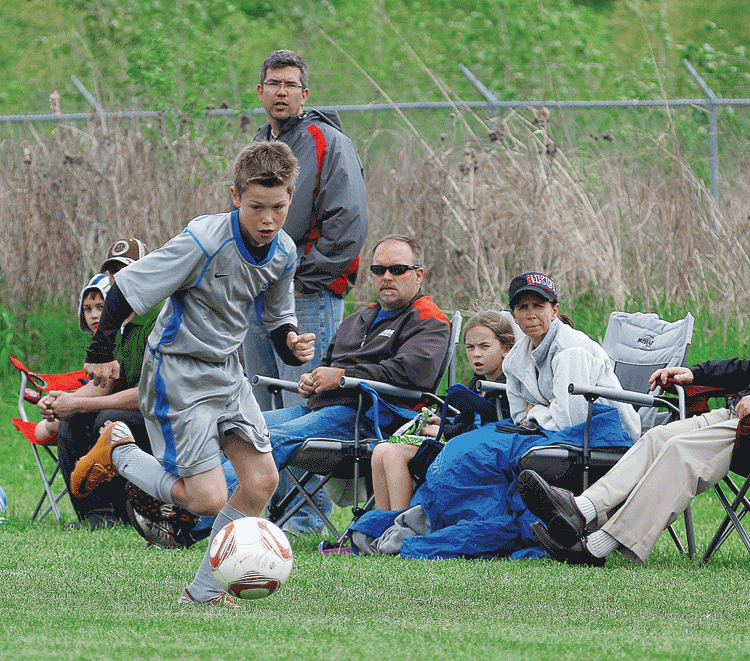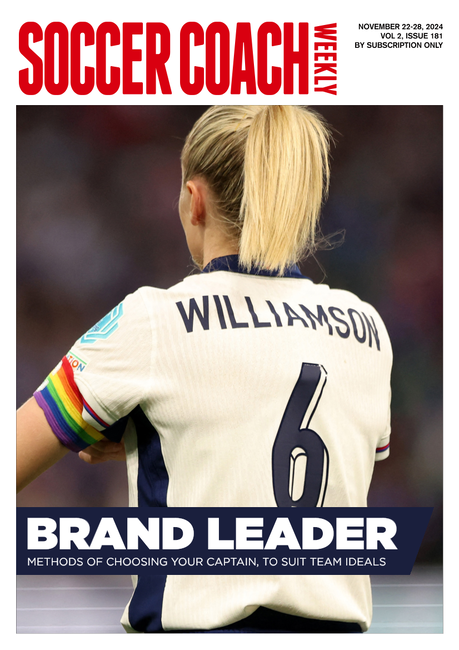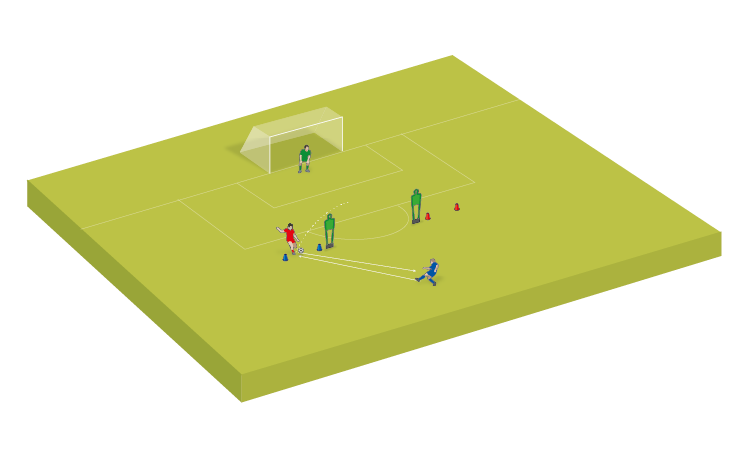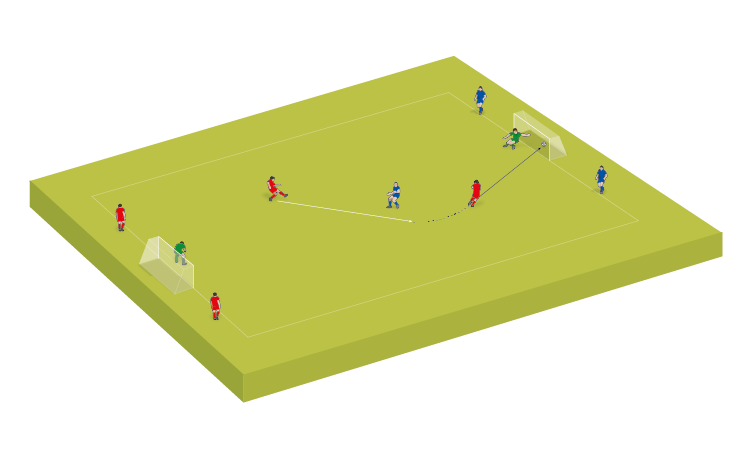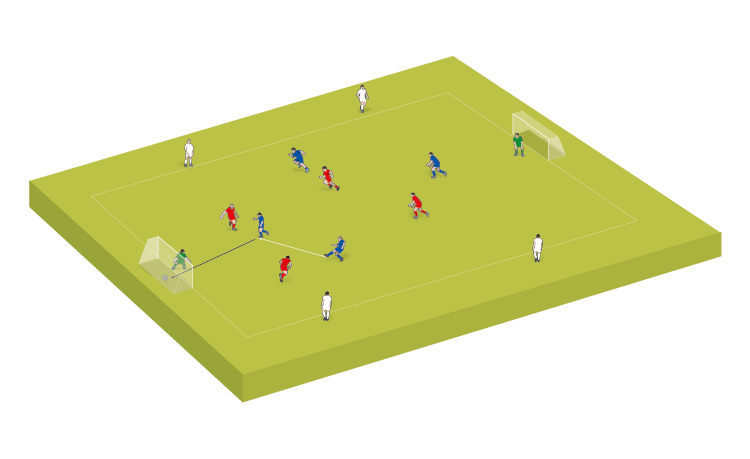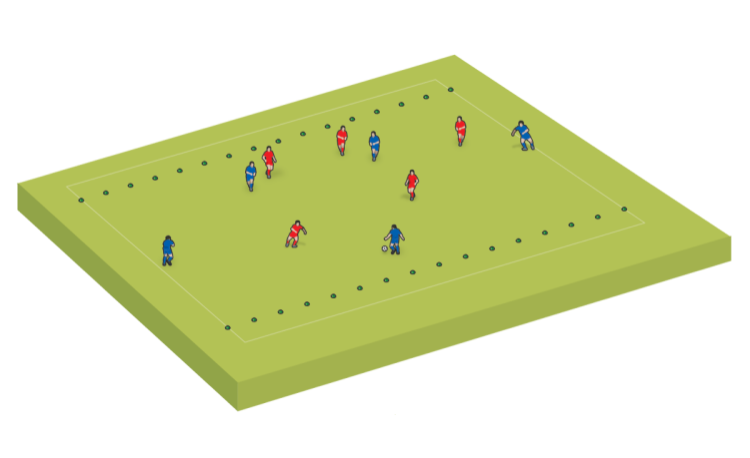Dealing with critical parents
Coaching Adviceby Dave Clarke
I think all of us have a dark side that turns us into critics. Some people can be more critical than others, but if you’re on the receiving end you have to close your ears to the barbed comments and just let the critics get on with it.
I think all of us have a dark side that turns us into critics. Some people can be more critical than others, but if you’re on the receiving end you have to close your ears to the barbed comments and just let the critics get on with it.
I was at a coaching session last week and all around me I could hear coaches being critical of what was going on – rather than write down and create something from it, they just wanted an excuse to say ‘I’m better than you’.
But it’s not just other coaches. Working with grassroots teams I tend to hear criticism constantly and lot of it comes from the parents at the side of the pitch. If their son or daughter has not played well, the coach hasn’t been doing his job properly. If their son or daughter is substituted, the coach hasn’t a clue what he is doing. And on it goes.
Remember, criticism is easy to make but your achievements are not. Criticism from parents is often a tool to defend their children and to defend themselves in the face of other parents with higher achieving kids – it’s not an attack on you as such but it can be hard to ignore.
It’s easier to deal with criticism and when you realise the reasons behind it. You are doing a great job so don’t let them put you off. It is because you have given up your time and taken on the role of coach that you have been thrust into the limelight and unfortunately a lot of people will resent your position of importance.
When I first started coaching I remember one of my teams went through a sticky patch in the middle of the season, having started out with four straight wins. After one game a parent came up to me and told me that he had spoken to a few of the other dads and they had decided my tactics were wrong. I was taken aback and rushed home to go through my notes and think about what they had said.
My tactics hadn’t changed but the players were on a steep learning curve and some aspects of their play were just beginning to come through. At that time I felt quite nervous about the score in games – not like now when I look at how well the team played before I even think about the score.
In attacking me the dads had come up with reasons why their kids hadn’t won the game, but it was their problem, not mine. Now that I understand why people criticise, I no longer feel nervous about what parents think of me. Once you realise why people criticise you’ll deal with it much better too.
I was at a coaching session last week and all around me I could hear coaches being critical of what was going on – rather than write down and create something from it, they just wanted an excuse to say ‘I’m better than you’.
But it’s not just other coaches. Working with grassroots teams I tend to hear criticism constantly and lot of it comes from the parents at the side of the pitch. If their son or daughter has not played well, the coach hasn’t been doing his job properly. If their son or daughter is substituted, the coach hasn’t a clue what he is doing. And on it goes.
Remember, criticism is easy to make but your achievements are not. Criticism from parents is often a tool to defend their children and to defend themselves in the face of other parents with higher achieving kids – it’s not an attack on you as such but it can be hard to ignore.
It’s easier to deal with criticism and when you realise the reasons behind it. You are doing a great job so don’t let them put you off. It is because you have given up your time and taken on the role of coach that you have been thrust into the limelight and unfortunately a lot of people will resent your position of importance.
Dad decided my tactics were wrong
When I first started coaching I remember one of my teams went through a sticky patch in the middle of the season, having started out with four straight wins. After one game a parent came up to me and told me that he had spoken to a few of the other dads and they had decided my tactics were wrong. I was taken aback and rushed home to go through my notes and think about what they had said.
My tactics hadn’t changed but the players were on a steep learning curve and some aspects of their play were just beginning to come through. At that time I felt quite nervous about the score in games – not like now when I look at how well the team played before I even think about the score.
In attacking me the dads had come up with reasons why their kids hadn’t won the game, but it was their problem, not mine. Now that I understand why people criticise, I no longer feel nervous about what parents think of me. Once you realise why people criticise you’ll deal with it much better too.
Newsletter Sign Up
Coaches Testimonials

Gerald Kearney, Downtown Las Vegas Soccer Club

Paul Butler, Florida, USA

Rick Shields, Springboro, USA

Tony Green, Pierrefonds Titans, Quebec, Canada
Subscribe Today
Discover the simple way to become a more effective, more successful soccer coach
In a recent survey 89% of subscribers said Soccer Coach Weekly makes them more confident, 91% said Soccer Coach Weekly makes them a more effective coach and 93% said Soccer Coach Weekly makes them more inspired.
*includes 3 coaching manuals
Get Weekly Inspiration
All the latest techniques and approaches
Soccer Coach Weekly offers proven and easy to use soccer drills, coaching sessions, practice plans, small-sided games, warm-ups, training tips and advice.
We've been at the cutting edge of soccer coaching since we launched in 2007, creating resources for the grassroots youth coach, following best practice from around the world and insights from the professional game.
